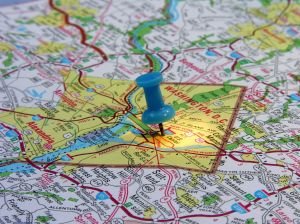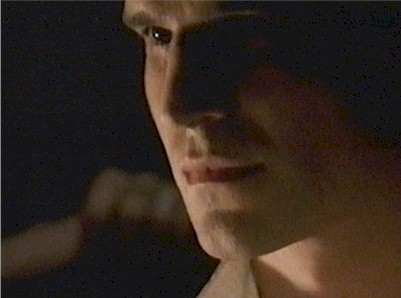
A few weeks ago at an RWA conference, I had the opportunity to do my first ever face-to-face pitch to a great editor who shall remain nameless—but trust me, she’s awesome. After talking to my lovely and very helpful agent, I decided to pitch my spychick novel. We both agreed that it was not precisely what this editor was generally looking to acquire, but that it would be good practice for me and hey—you never know, right? I’ll spare you the suspense and tell you that the meeting went well. I really liked the editor’s no-bullshit style and she not only liked my pitch, but asked to see the full manuscript. But what intrigued me most about the whole meeting was what caught her interest. The first minute and a half of the meeting went more or less like this:
Editor: Nice to meet you. I have a few questions to start off.
Me: Sure.
Editor: Contemporary or historical?
Me: Contemporary.
Editor: Genre?
Me: Romantic comedy/thriller.
Editor: Who’s your heroine and what does she do?
Me: __________________.
Editor: Who’s your hero and what does he do?
Me: __________________.
Editor: [Not crazy about hero’s occupation.]
Me: [Boy, this is going well.]
Editor: What’s the setting?
Me: Los Angeles and Berlin.
Editor:
Reeaallly.From there on, I really felt I had her attention. Said editor immediately remarked that she had never had a romance set in Berlin and proceeded to ask why it was set there, whether or not I had been to Berlin and how readers would know that the action was taking place in Berlin and not Topeka. So for the last few weeks as I run through my edits on this MS, I’ve been taking care to make sure I really have a sense of place about the story. Fortunately, I
have been to Berlin so my recollections of the city and the places the heroine sees in her mad dash across it come from personal experience and not from a guidebook. Ditto with Los Angeles.
But since place has been on my mind so vividly recently, I’ve started going over the books I’ve read recently and thinking about how place is presented there. It may not be the first thing that jumps out at some readers, but I have to admit that place and the author’s use of it can make or break a book for me. Take Stephanie Meyer’s
Twilight, for a perfect example of this. The book is set primarily in a small town on the Northwestern coast, and while I have spent only minimal time anywhere in the Northwest (and then only in big cities), Meyer vividly paints the setting as both an important part of the story and as a background. When the action moves briefly to Arizona, the shift is dramatic and noticeable. As a reader, I felt disoriented by the move and that helped draw me even more into the character’s trauma. Very, very well done.
On the opposite end, I recently read a book (which shall also remain nameless) that took place in Budapest. Now, one of the reasons I picked this book up is because of the unique setting. I briefly visited that city two years ago and loved the history, architecture and culture. If I close my eyes, I can still remember the view from Fisherman’s Bastion, the weird up-and-down railway car that takes you to the top of the hill where most of the Buda side rests, the dark coolness of the labyrinth beneath the castle and the old Soviet monument park still visible from the river at night.
This book? Had none of that. By the time the book was over I felt certain that the author had not only never set foot in Budapest, but that she hadn’t even bothered to read a guidebook about it. I am not necessarily against setting a work in a place you’ve never visited; some authors have the ability to bring a place alive after reading about it and seeing pictures and that’s great. Sometimes a particular plot point or even a plot itself requires the action to move to a certain place and I understand that this might require an author to “write blind,” as it were. What made the entire lack of place stick out to me in this particular book was that it didn’t
need to take place in Budapest. It could have been almost anywhere else—so why pick a city so unique and rich if you’re not going to use it?
When I read a book, I want to feel transported. I don’t care if it’s to a big city I’ve always wanted to visit (or have visited and loved) or to a small town that I’ll probably never see. I want to
know I’m in a different place, and not only because the book jacket tells me so. Done well, setting can make a book rise above its competition and earn a place on my “keeper” shelf. Without place, the book—just like the reader—may very well end up lost in limbo.




